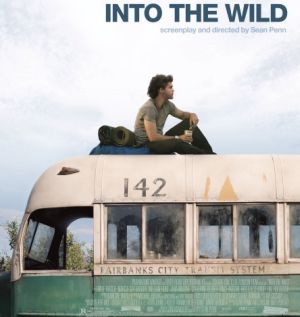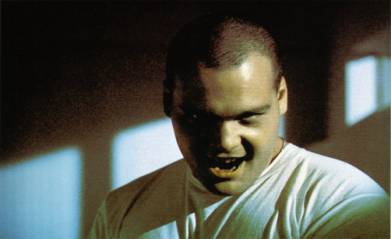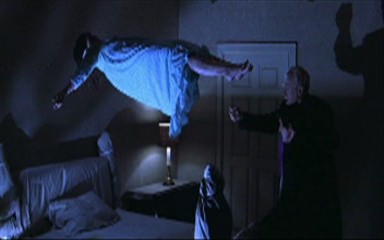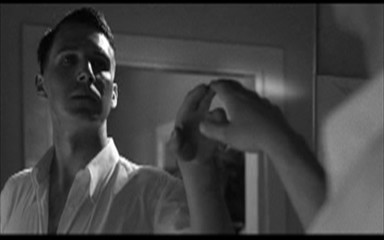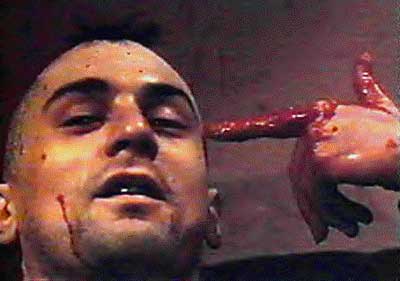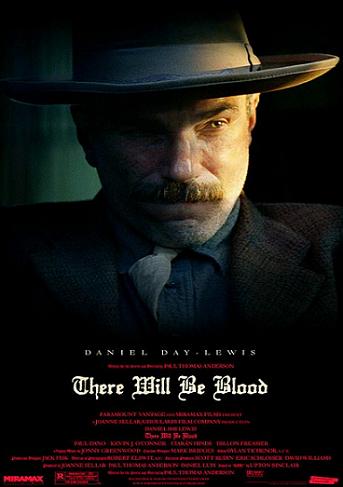Some of the best movies I have seen are foreign-language films. They are some of the most original, pure and mostly unspoilt by Hollywood gimmicks and hypocrisy.
There are a lot more foreign language films that I want to watch and that I haven't had the opportunity to because of lack of accessibility, so this list might be missing quite a few films that should have been here but I made a list of 10 foreign language films that I have seen and really like. This is by no means a list of BEST TEN FOREIGN LANGUAGE FILMS EVER but my 10 personal favourites, even though I really need to see more.
10. Water (2005)

Language: Hindi"Water" examines the plight of a group of widows forced into poverty at a temple in the holy city of Varanasi. It focuses on a relationship between one of the widows, who wants to escape the social restrictions imposed on widows, that the only choices she have are; one, marry her husband's younger brother, if his family permits; two, to kill herself on his funeral pyre; three, to live a life of celibacy, discipline, and solitude amongst her own kind.
This film is poignant. Its subject matter is relevant and upsetting, the sorry plight of Hindu widows in traditional Indian society is made evident. The director has clearly set out to make a film with a message but she lets the story carry the message and she does not demonize the supporters of ancient oppressive practices, some of whom are motivated by faith rather than self-interest. Strangely the film's beauty undercuts to some extent the political message. People might feel that the film attacks Hinduism but what it really does is attack a certain set of beliefs that Hinduism bring with it, like how one might attack Christianity for claiming that the world is only 4000 years old. It asks questions that many of the higher-ups do not want to answer and is a great film in itself but carries a strong message of gender equality in the Hindu world.
"Water" has been banned from India and Pakistan.
9. Spirited Away (2001)

Language: JapaneseWhile moving to a new home in Japan, Chihiro and her parents take a wrong turn down a mysterious wooded path. They come across an ominous-looking tunnel of which only Chihiro is scared. Going through the tunnel, they are lead them to a mysterious town filled with restaurants that have all kinds of delicious food on display. Chihiro's parents quickly sit down and start gorging themselves, assuming they will pay the restaurant upon their return. Chihiro's doubt of this strange town leads her to wander off, and she comes across a building of titanic size, where a young boy warns her to leave before nightfall. However, as the sun sets, the town begins to fill up with the gods of Japan's mythology, and Chihiro returns to find her parents mysteriously turned into pigs. The young boy, Haku, works in the building, which is a bathhouse for 8 Million gods. He helps Chihiro find work in this new world, find a way to save her parents from a dinner platter, and find her way home.
"Spirited Away" is an odd film to put here because it's anime and I'm sure a lot of hardcore anime lovers have seen it already, especially since it's been dubbed in English now (dubs suck, subs all the way... subs not dubs) But I'm just putting it here as a representative of every Hayao Miyazaki film (others are Princess Mononoke and Howl's Moving Castles). I am not an anime fan but the man makes beautiful movies, not only in the visual but in the thematic. Spirited Away is nothing short of a lavish fairytale filled with spectacular ideas, characters and images. If you like shitty anime like Yu-Gi-Oh and Digimon, you should definitely give this a try and see how a good anime is actually done.
8. Amores Perros (2000)

Language: SpanishAmores Perros is about three interconnected stories about the different strata of life in Mexico City all resolve with a fatal car accident. Octavio is trying to raise enough money to run away with his sister-in-law, and decides to enter his dog Cofi into the world of dogfighting. After a dogfight goes bad, Octavio flees in his car, running a red light and causing the accident. Daniel and Valeria's new-found bliss is prematurely ended when she loses her leg in the accident. El Chivo is a homeless man who cares for stray dogs and is there to witness the collision.
Amores Perros (the English title is "Love's a Bitch") is the first of Alejandro Gonzalez Inaritu's "interconnection" trilogy (the other two are 21 Grams and Babel). The film represents three different viewpoints of the struggle of love and the depths the human soul can descend into to attain it or while chasing it. Breaking it up into three different narratives, each revolving around different characters, presents the audience with the ability to view each story as independent the others, a more pervasive perspective. Amores Perros explores everything it wants to explore from so many angles and splits them up into so many layers that it is hard to watch it and not appreciate it. It's a fascinatingly intertwining tale involving dog fights, petty gangsters, a tragically injured model, a cheating husband, an abused teenage wife, and a homeless hit man. Not only is it a great story, the director paces the movie so well that it keeps the audience in constant suspense. It's a dark slice of Mexican life and not everyone will be able to stomach it because Inaritu's films usually have this depressing level of reality that cut right through you.
7. The Motorcycle Diaries (2004)

Language: Spanish"The Motorcycle Diaries" is an adaptation of a journal written by Che Guevara when he was 23 years old. He and his friend, Alberto Granado are typical college students who, seeking fun and adventure before graduation, decide to travel across Argentina, Chile, Peru, Colombia, and Venezuela in order to do their medical residency at a leper colony. Beginning as a buddy/road movie in which Ernesto and Alberto are looking for chicks, fun and adventure before they must grow up and have a more serious life.
How many people do you see sporting Che Guevara T-shirts? Nine out of ten of them might not be able to tell you anything about Che Guevara or what he did except he was 'some sort of revolutionary'. But laying my own personal views on Che Guevara guerrilla tactics and politics aside, this film is simply a portrait of a boy believing in something and the conflict brewing in him while he decides to leave his past life behind and go out to achieve what he wants. It casts Che in a remarkably bright light, which is necessary, I believe, to show how passionate he was about going out to meet what he wanted and struggle for the ideals he believed in. What makes this film poignant and the message strong is the fact that we actually know who the character eventually will become after the story of the film finishes and the end titles start to run, that makes it rather more poignant. We only witness the beginning of his personal journey and know how much he will travel.
6. Downfall (2004)

Language: German
It's the last days of Adolf Hitler, April 1945, and Hitler's personal secretary Traudl Junge finds herself in the Der Fuhrer's bunker. Facing inevitable defeat, Hilter's moods range from defiance to fight or flee, remain loyal or opt for self-preservation. Eva Braun parties while Magda Goebbels kills her children. The movie goes on to show how Hitler and Eva lived their last hours in the Bunker.
We're going from one 'revolutionary' to another. The last film was about the start of Che Guevara's mission. This film is about the last days of Adolf Hitler's mission. Now, that's something nobody has seen before. It tells the story from the eyes of his impressionable secretary. The film portrays Hitler in a sympathetic light as his reign is ending and the walls are closing in on him and every plan he had conceived and dreamt of. The film is uncanny to make us feel sorry for him while all of this is happening when we know inside it was probably the greatest thing to ever happen. It is a psychological attempt at creating a slightly different image of Hitler and his closest "companions" than has been preferred by many so far. The "monsters" appear to have human feelings. They, however, have mostly dark rather than black souls.
5. Paradise Now (2005)

Language: ArabicThe story places two close friends, Palestinians Said and Khaled, recruited by an extremist group to perpetrate a terrorist attack in Tel-Aviv, blowing up themselves. However, things go wrong and both friends must separate in the border. One of them, maintaining in his purpose of carry the attack to the end, and the other will have his doubts about it.
Paradise Now is a very relevant film to today and it is a shame that the people it most applies to might not even watch it. It's bold and authentic and opens our eyes to the internal strife in the Middle East. It is about the conflict between religion and humanity, the moral consequences felt because of a so-called calling from God. The film asks the question of whether they are really martyrs or not and shows the entire process of the preparation of the suicide bombing, including the farewell videotapes, the cutting of their hair and having the bombs strapped on them so they could go bomb a building. Will they really find eternal peace and rest if they do this? By having two protagonists, one willing to do it and one dubious, the film does a great job of trying not to be one-sided with its arguments and getting into the minds of these young men.
4. Pan's Labyrinth (2006)

Language: SpanishIn 1944 fascist Spain, a girl, fascinated with fairy-tales, is sent along with her pregnant mother to live with her new stepfather, a ruthless captain of the Spanish army. During the night, she meets a fairy who takes her to an old faun in the center of the labyrinth. He tells her she's a princess, but must prove her royalty by surviving three gruesome tasks. If she fails, she will never prove herself to be the the true princess and will never see her real father, the king, again.
Director Guillermo del Toro almost did not make Pan's Labyrinth. He had lost his notebook with his story and sketches in a taxi cab. It was only a while later when the cab driver asked for him to reclaim it, he decided he had to do the movie. And I'm glad he did. The film has already developed a rather large fanbase because of its touching story, its remarkable concepts and its beautiful cinematography. This is one of the prettiest-looking films I have ever seen and it just wows the mind to watch the scenes flow into each other. It switches between a brightly coloured fantasy world and a dark dismal real one. Del Toro does a great job making these worlds spill together in the end and the effect it has on its protagonist. The villain is also one of the most disgusting people ever portrayed on film.
3. Life is Beautiful (1998)

Language: ItalianIn 1930s Italy, a carefree Jewish book keeper named Guido starts a fairy tale life by courting and marrying a lovely woman from a nearby city. Guido and his wife have a son and live happily together until the occupation of Italy by German forces. In an attempt to hold his family together and help his son survive the horrors of a Jewish Concentration Camp, Guido imagines that the Holocaust is a game and that the grand prize for winning is a tank.
As the film's tagline reads, it is an unforgettable fable that proves love, family and imagination conquer all. It is a very sad love song heralding the beauty of keeping childhood sacred and the father who would go at any end to make it so for his son. The film begins as a dream and descends into a nightmare but the script and the acting is so well-done that it makes us seem like the characters would snap out of it from any time during the movie and go back to their normal lives. Life is Beautiful resonates on a number of levels that relate to childhood and asks the question, "Is a white lie so bad? Is shielding my child from the ugly things in reality bad?"
It's a shame movies like this aren't made anymore.
2. Amélie (2001)

Language: French
Amélie is a story about a girl named Amélie whose childhood was suppressed by her Father's mistaken concerns of a heart defect. With these concerns Amélie gets hardly any real life contact with other people. This leads Amélie to resort to her own fantastical world and dreams of love and beauty. She later on becomes a young woman and moves to the central part of Paris as a waitress. After finding a lost treasure belonging to the former occupant of her apartment, she decides to return it to him.
After seeing his reaction and his new found perspective - she decides to devote her life to the people around her. Such as, her father who is obsessed with his garden-gnome, a failed writer, a hypochondriac, a man who stalks his ex girlfriends, the "ghost", a suppressed young soul, the love of her life and a man whose bones are as brittle as glass. But after consuming herself with these escapades - she finds out that she is disregarding her own life and damaging her quest for love. Amélie then discovers she must become more aggressive and take a hold of her life and capture the beauty of love she has always dreamed of. This film's world is bright, playful, cheery and colourful and I don't see how anyone can not enjoy, or at least appreciate, what was crafted here.
1. City of God (2002)

Language: PortugeseBased on true events and characters who live in the overlooked and poverty stricken slums in the shadows of Rio de Janiero, where life expectancy doesn't reach the 30's and drug dealers are kings. Brazil, 1960's, City of God. Three young men robs motels and gas trucks. Younger kids watch and learn well...too well. 1970's: one of the kids has prospered very well and owns the city. He causes violence and fear as he wipes out rival gangs without mercy. His best friend Bené is the only one to keep him on the good side of sanity. Rocket, another boy, has watched these two gain power for years, and he wants no part of it. Yet he keeps getting swept up in the madness. All he wants to do is take pictures. 1980's: Things are out of control between the last two remaining gangs...will it ever end? Welcome to the City of God.
There is a shot in City of God of the protagonist watching through some holes in the wall, witnessing a very gruesome violent murder. This is exactly what the film is to the viewer - you're seeing what you're not sure what you want to be seeing. City of God startles and shocks. You think your city is a violent place? You think shit is bad? Wait until you see the favelas of Brazil, where being good just does not pay, even if you are nine years old. The story is sprawling and is told through a number of vignettes and the film highlights its characters so much that they become like familiar friends to you. The violence is in-your-face distressing, but not in a manner of showing excessive bloodshed, but the reasons why it is committed and WHO commits it. It is not normal to see a 10 year old toting a gun and shooting a grown man to death, stealing his money and then laughing to his friends about it as they count the money. But this is how things were in the Brazil slums back then.
This was what was normal even though it appears very shocking to us. City of God is a modern day masterpiece of social commentary and storytelling blended into one, along with a very lively ensemble of performances. The story covers all the facets of the life, charting the growth of several key members of the gangs from childhood through to young adulthood, with their transformation from young hoodlums to local drugs barons. City of God is essential viewing, and is cinema at its most brilliant. The violence is never presented abhorrently, distastefully or gratituously but is used artfully to present a point that will hit you right in the chest.
--
Honourable Mentions:
Letters from Iwo Jima (Japanese)
Monsoon Wedding (Hindi)
The Barbarian Invasions (French)
Lagaan (Hindi)
No Man's Land (German/Bosnian)
Tsotsi (Zulu/Afrikaans)
The Sea Inside (Spanish)
The Lives of Others (German)Yeah, I need to see more foreign flicks but I don't have much access. So talk about your favourite foreign flicks!





















